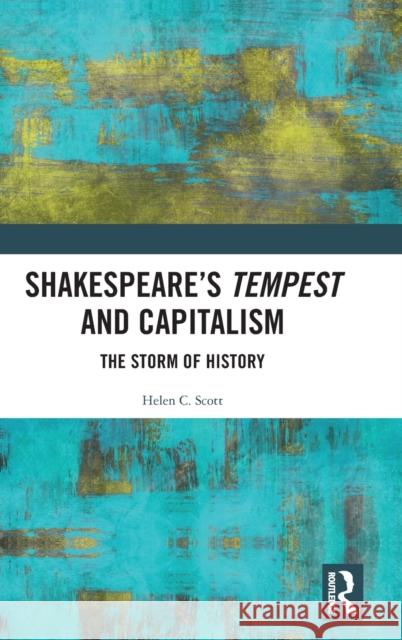Shakespeare's Tempest and Capitalism: The Storm of History » książka
Shakespeare's Tempest and Capitalism: The Storm of History
ISBN-13: 9781409407263 / Angielski / Twarda / 2019 / 252 str.
Shakespeare's Tempest attracted countless anti-colonial writers during the period of decolonization in Africa and the Caribbean, and continues to offer rich material for writers and directors interested in the intimate and varied connections between war and empire. In her forceful study, Helen Scott situates The Tempest within Marxist analyses of the early modern process of 'primitive accumulation' of capital, which she suggests offer an explanation for the play's continued resonance at the turn of the twenty-first century. Beginning with the rise of 'postcolonial Shakespeares' followed by a reading of the play at its moment of production in 1611, Scott moves gracefully through more than two centuries of theatrical productions and literary appropriations to map the way the central thematic concerns and figurative patterns of the play bespeak the upheavals and dispossessions that accompanied the birth and growth of capitalism. She traces colonial interpretations of the play from Edmond Malone's 1803 reading to Beerbohm Tree's staging at the end of the nineteenth century, through Octave Mannoni's 1948 Prospero and Caliban and Philip Mason's 1962 'Prospero's Magic, ' to the ascendency of postcolonial criticism in the 1980s. The play's significance during the era of national libration struggles emerges in Scott's readings of works by Aime Cesaire, George Lamming, and Edward Kamau Brathwaite. Registering anxieties about imperialism and war in mid-twentieth-century Britain, The Tempest became a vehicle for exploring the intersection of oppression around race, class, gender, and sexuality in works by W. H. Auden, Marina Warner, Derek Jarman, and Philip Osment. Turning to twenty-first century productions, including Rupert Goold's 2006 Royal Shakespeare Company staging and Julie Taymor's 2010 film, Scott explores the ramifications and figurative potential of Shakespeare's play for global culture. Sensitive to the play's original concerns and informed by scholarship on performance history, Scott's moving study impels readers towards a fresh understanding of how the metaphors of sea change and metamorphosis betoken the literal and figurative tempests of capitalism's old age that now threaten 'the great globe itself.'











